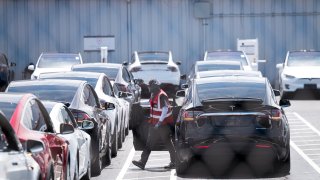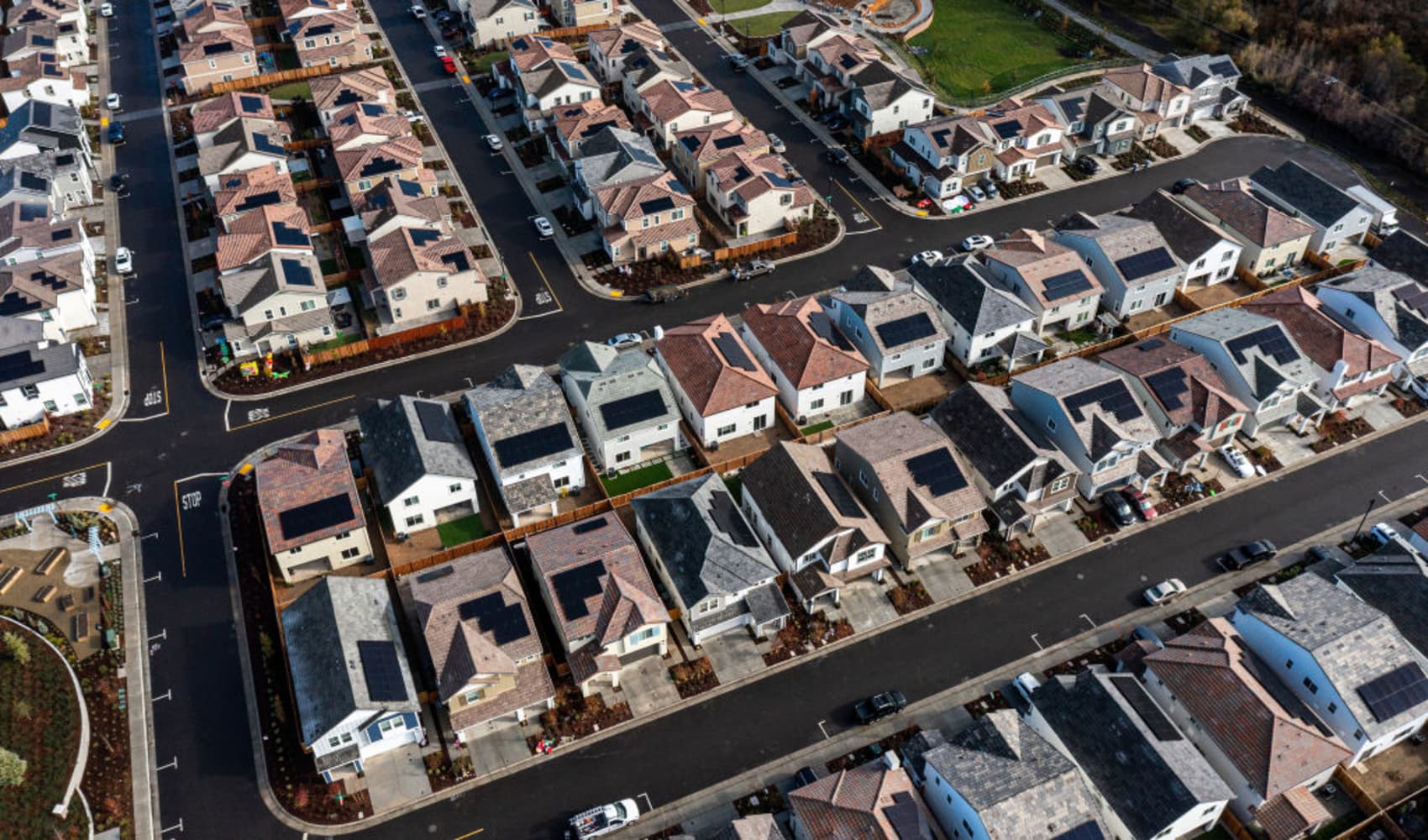
- The EPA accused Tesla last week of failing to prove it is in compliance with federal emissions standards for hazardous air pollutants.
- German authorities also fined Tesla 12 million euros for allegedly failing to fulfill their obligations around taking back old batteries from customers.
Tesla is defending itself in the U.S. and Germany against allegations that it has violated environmental rules and regulations, according to a new financial filing.
In the U.S., the Environmental Protection Agency accused Tesla last week of failing to prove it is in compliance with federal emissions standards for hazardous air pollutants. Specifically, the EPA is seeking details about how Tesla handles "surface coating" of its vehicles.
As CNBC has previously reported, the "paint shop" at Tesla's main U.S. car plant in Fremont, California, has a history of problems, including fires, improper cleaning and maintenance. Some vehicle re-touching, to fix flaws in paint on the cars, has been done in a tented "paint hospital" at the Fremont factory, employees previously told CNBC.
Get Tri-state area news and weather forecasts to your inbox. Sign up for NBC New York newsletters.
In 2020, Tesla embarked on massive improvements to its paint facilities, Fremont building permits revealed.
Tesla said in the filing Wednesday that the company "has responded to all information requests from the EPA and refutes the allegations." The company does not expect any "material adverse impact" on its business from its dealings with the EPA in this matter.
Tesla is also still tangling with local air quality authorities in California — the Bay Area Air Quality Management District — over previously disclosed "notices of violation," relating to "air permitting and related compliance for the Fremont Factory."
Money Report
In Germany, Wednesday's financial filing said, authorities have fined Tesla 12 million euros, or about $14.5 million, for allegedly failing to make public notifications and properly fulfill their obligations to take back old batteries from customers.
German law requires automakers selling electric cars to take back batteries and dispose of them in an environmentally sustainable manner.
Tesla wrote in the filing: "This is primarily relating to administrative requirements, but Tesla has continued to take back battery packs." Tesla filed an objection in Germany and said that the matter should not have a material impact on Tesla's business.
A positive government relationship is crucial to Tesla in Germany, as the company is in the midst of building its first European plant there, in Grünheide, Brandenburg, just outside of Berlin.
According to a public statement Tuesday, Tesla has notified authorities there that it wants to obtain a permit to build and operate a battery cell production facility at that new plant, currently under construction. Tesla previously obtained a permit to build a vehicle assembly plant there, but not with the battery cell production facility.
In an earnings call on Monday, executives said Tesla expects to begin initial limited production out of its Berlin-area factory this year, with volume production beginning there in 2022. They did not say how the permit revision could impact timing for start of production.
Shares of Tesla dipped slightly in early morning trading on Wednesday after the filing.






